ACCEPT – Strength in solidarity and a call for change
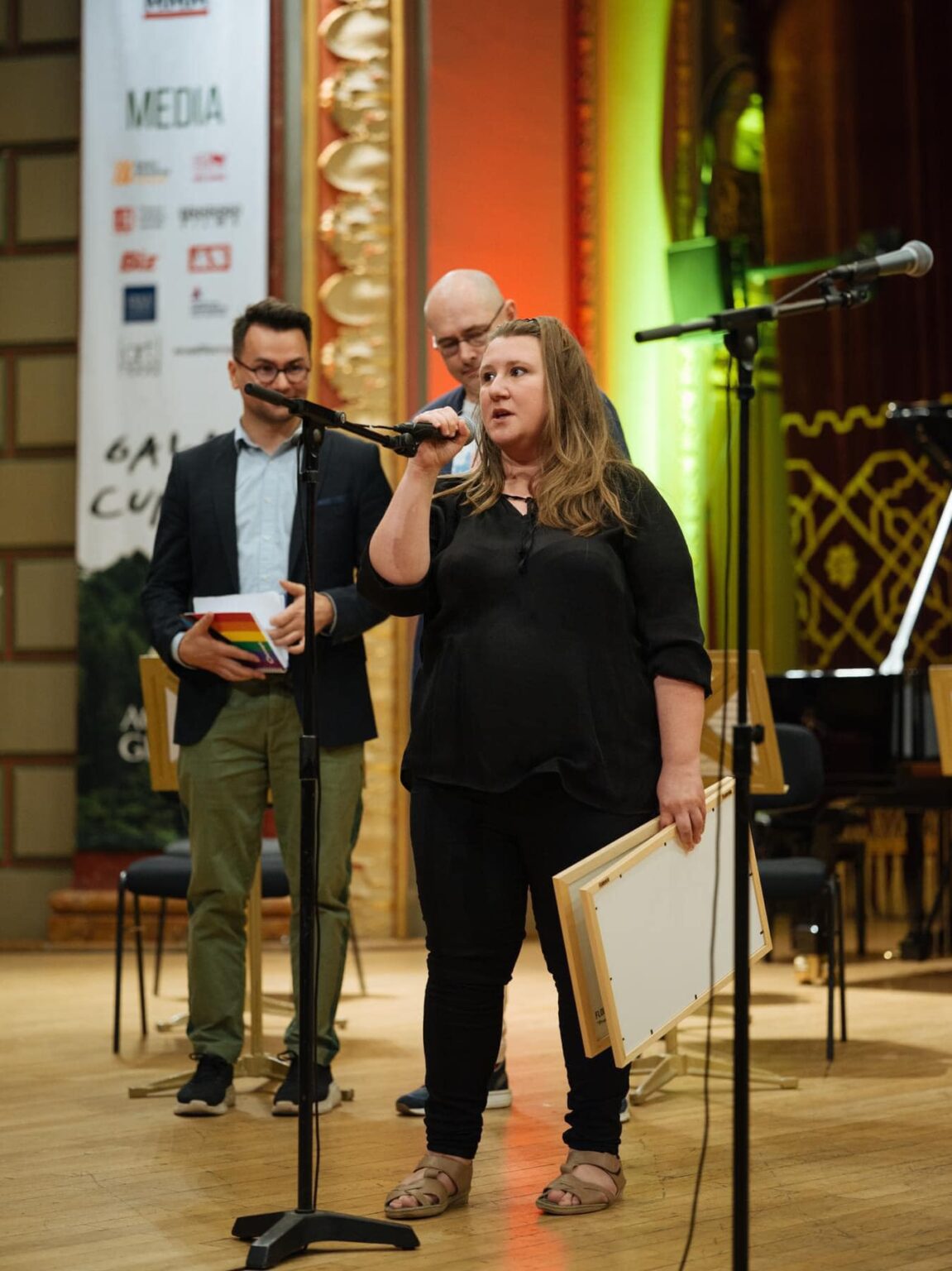
The Romanian LGBTI organisation, ACCEPT plays an important role in co-hosting the ILGA-Europe conference this year. Co-president Teo Ion-Rotaru shares her insights into what the Conference represents for the organisation and the LGBTI community in Romania, in light of the current political climate.
Hi Teo. Can you tell us what hosting the ILGA-Europe Annual Conference means for ACCEPT?
ACCEPT has been part of the European LGBTI movement for almost 30 years. Even though some faces have changed — staff, board members, and activists — our focus remains the same: growing and consolidating the movement. Hosting this conference offers a unique opportunity to contribute to the broader European movement, especially at a time when it is so needed.
It is a chance to bring together young and seasoned activists alike, offering a space where we can collectively reflect on our successes and challenges. My own first ILGA-Europe conference reinforced my belief in the power of community. Seeing others who had been through similar struggles, sharing strategies and support, was a powerful reminder that we are not alone.
What does this event mean in a wider political context for the LGBTI movement in Romania?
The political environment in Romania is tense, with Presidential and Parliamentary elections around the corner. The rights of LGBTI people are increasingly important for Europe, and Romanian politicians are aware that the eyes of Europe are on them.
We hope that this event will serve as a platform to amplify the voices of Romania’s LGBTI community, not just within our own country but across Europe. Hosting this conference sends a clear message: you cannot demand support from Europe while turning a blind eye to the rights denied to your own citizens.
Our fight is intersectional—it’s not just about LGBTI rights, but about democracy, the rule of law, and the well-being of all minorities in Romania. This conference will shine a spotlight on these struggles and push us towards greater equality.
Meet our Annual Conference hosts: MozaiQ – The courage to grow the movement in Romania
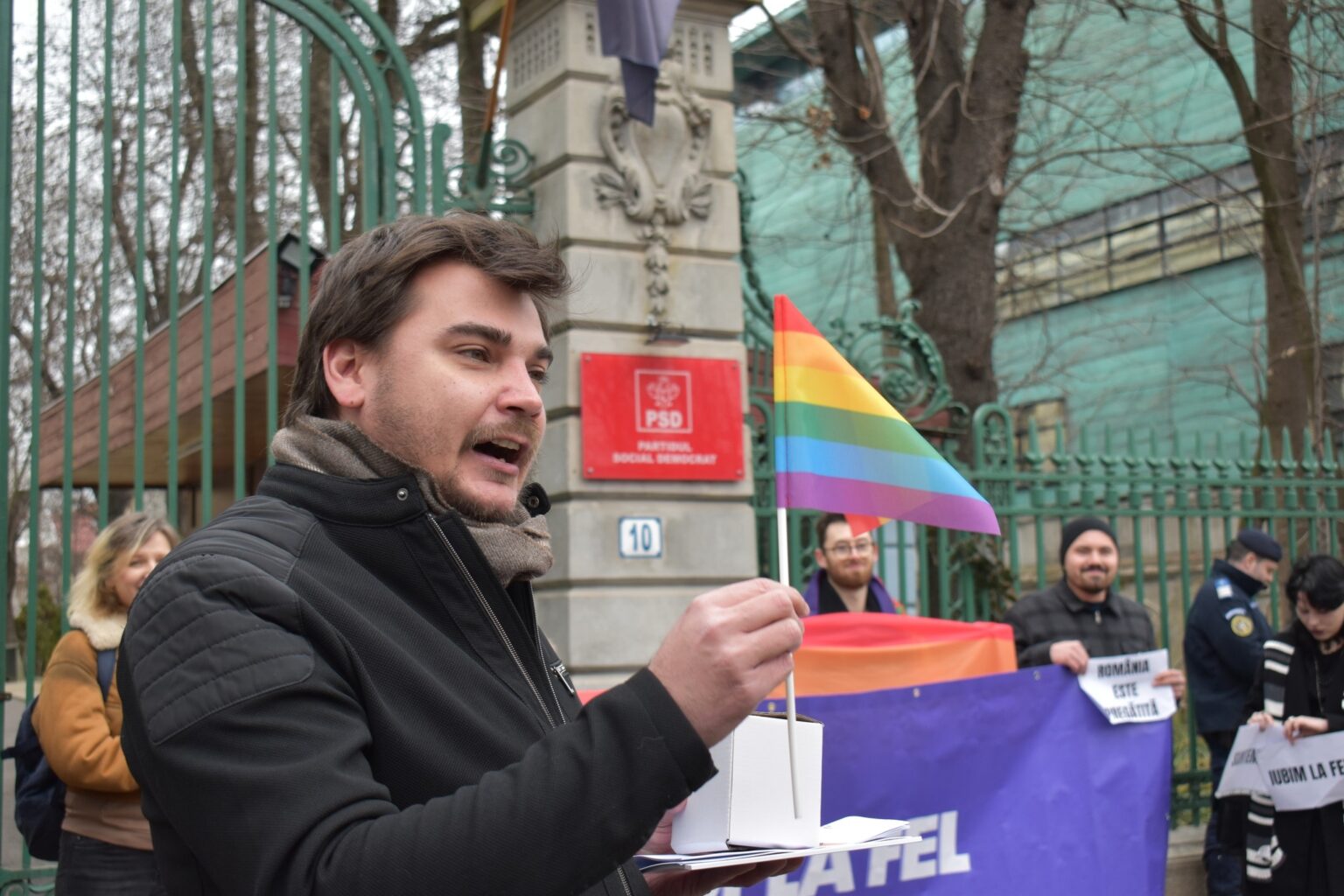
As the ILGA-Europe annual conference approaches, we turn our focus to one of the local co-hosts, MozaiQ, an organisation that has played a crucial role in shaping the LGBTI movement in Romania. Vlad Viski from MozaiQ shares what hosting the Conference means in the context of LGBTI rights in Romania.
Hi Vlad, tell us, what does hosting this conference mean for MozaiQ?
For us, hosting the ILGA-Europe Annual Conference is a testament to the growth of Romania’s LGBTI movement over the last decade. When we started in 2015, there were only one or two LGBTI organisations in the country. Today, there are more than 20 groups, not just in Bucharest but across six other cities. This transformation has been at the heart of MozaiQ‘s mission—building a movement from the ground up, creating spaces for underrepresented groups such as Roma LGBTI youth, transgender people, and the elderly.
The Conference is a reward for our efforts, and it shows that Romania is ready to connect with activists from across Europe. This Conference isn’t just about us; it’s about recognising that our work is worthy and that our movement is mature.
What does this mean in a wider political context for the LGBTI movement in Romania?
Romania’s political landscape has been anything but easy for LGBTI people. In ILGA-Europe’s Rainbow Map, Romania ranks 26th out of 27 EU countries on LGBTI rights, only ahead of Poland. Same-sex couples are not legally recognised, and gender recognition for trans people is an ongoing battle. Recent legal victories, such as defeating the 2018 referendum aimed at banning gay marriage and the 2020 bill that sought to outlaw gender identity education, and the 2024 landmark ruling from the EU Court of Justice affirming the mutual recognition of legal gender identities across Member States, show the importance of continued resistance.
We’ve managed to prevent Romania from following the path of Hungary or Poland, where democracy is being eroded. Our success in stopping these anti-LGBTI measures shows that civil society is strong, but the fight is far from over.
What is in the near future for the LGBTI movement in Romania?
With the upcoming Presidential and Parliamentary elections happening before the end of the year, the ILGA-Europe conference will play a role in keeping Romania’s LGBTI rights on the political agenda. Romania is being watched, and our movement is gaining power not just here, but across Europe. Romania has to stay on its European path. It has to provide a strong policy on legal gender recognition based on self-determination and create an environment in which LGBTI people are protected. It is essential that Romania continues to recognise the rights of LGBTI people as part of its commitment to the European path.
For good and bad: The trending impacts on LGBTI human rights in Europe and Central Asia
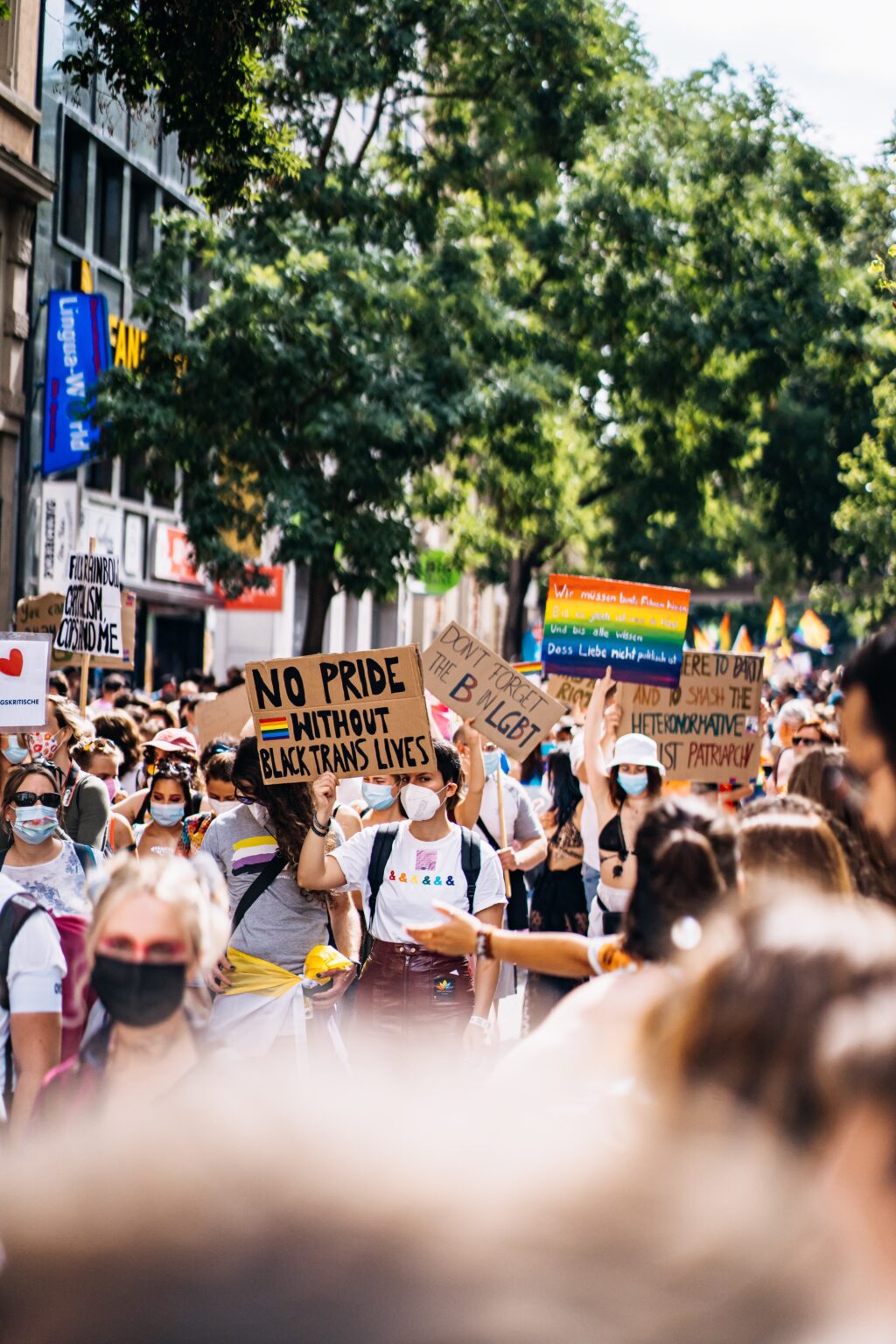
The most striking finding of ILGA-Europe’s Annual Review 2023 is a stark rise in the ferocity of anti-LGBTI hate and violence reported in Europe and Central Asia. But alongside this worrying trend, there are positive developments in areas such as legal gender recognition, public support, intersex human rights and civil society. Here are the key highlights.
At ILGA-Europe we’ve just published our Annual Review, showcasing the main developments and trends in the human rights Situation for LGBTI people in Europe and Central Asia. Disturbingly, the most striking finding this year is the levels of hate reported in the region. 12 years into this yearly reporting, the present edition finds that anti-LGBTI violence in 2022 was more targeted and extreme than ever in the history of our reporting.
Our Annual Review aims to paint a clear picture of the reality from the ground for our communities. It documents individual cases and events, as well as legislative, social and political advancements and regressions, and new available data. All reporting is based on the work of LGBTI activists in each country featured in these pages, as well as on our own work.
While the review points to the devastating consequences of the instrumentalisation of LGBTI people, mostly for political gain, there have been other developments in the direction of human rights and protection of LGBTI people.
We have not seen this severity of the violence before
For years, ILGA-Europe has been documenting the rise in hate while activists across the region have shown how anti-LGBTI speech, both online and by political and religious leaders, translates into violence harming people.
This phenomenon is across the board in this year’s Annual Review. For example, in France, the Ministry of Interior reported a 28% rise in hate crimes between 2020 and 2021. In Switzerland, LGBTI organisations reported a 50% increase between 2020 and 2021. Spain reported a 68% increase in 2021, while in England and Wales transphobic incidents rose by 56%.
There are also more reports than ever before of LGBTI people taking their lives, a clear sign how discrimination, hate speech and harassment are impacting mental health. In Italy, three trans women took their lives. Two of them were teenagers, the third woman was a teacher, who was suspended from school because she had socially transitioned. In Armenia, a young gay couple committed suicide after suffering harassment when a photo of them kissing went viral. These are just a few examples.
Sexual education is increasingly compromised
Education is a growing battleground in the resistance to LGBTI people and rights. In Hungary, as result of law banning LGBT content, teachers reported a fear of bringing sexual orientation, gender identity and other topics to the classrooms. In the Netherlands, 36 orthodox schools require anti-LGBTI declarations from pupils and parents, and the new Italian Prime Minister, Giorgia Meloni has publicly advocated for a ban on sex education in schools and the exclusion of LGBT people in children’s books.
Russia expanded its ‘propaganda law’ to prohibit positive and neutral information about LGBT people and “gender reassignment” to minors and adults. There was an alarming number of ‘propaganda’ charges or threats in educational establishments in the country. All in all, progression on sexual education is being challenged.
Public support for LGBTI people is growing
In parallel, the report finds growing support among societies for LGBTI people, also in countries where we might not expect it. For example, most Hungarians don’t consider ‘homosexual propaganda’ an important issue. In Poland, two thirds of the population support marriage equality and 60% support the abolition of anti-LGBT resolutions in the country.
What’s more, many politicians across Europe have shown their support throughout 2022. Many reacted with horror to the killings in Oslo and Bratislava and the European Parliament has publicly condemned the violations of LGBTI rights. We need more governments standing strong against hate in the media and online and more progress in advancing laws against hate crimes that protect LGBTI people.
There are more legal gender recognition laws that include self-determination
In the face of enormous backlash on trans people, and a number of forces trying to stop legal gender recognition (LGR), some countries made progress in 2022 and others showed a will to ensure a model of LGR based on self-determination.
Scotland, Finland and Spain were the best examples; by adopting LGR laws that include self-determination, these countries are showing a clear way forward for other governments.
Same-sex partnership is back on the agenda
After stagnating for a number of years, same-sex partnership recognition is on the rise again. Andorra adopted legislation to ensure heterosexual marriage and the recognition of same-sex civil partnerships guarantee the same set of rights. In Latvia, following a Supreme court decision ruling that same-sex couples should be given civil status, same-sex couples were recognised in court cases. Slovenia and Switzerland adopted marriage equality, including positive changes regarding adoption rights. Other countries took steps forward the adoption of laws that recognise same-sex partnerships.
While intersex human rights are rightfully taking a space in the agenda
There is also a growing awareness of intersex human rights across Europe. While Greece adopted a ban on non-vital medical interventions on children, the European Commission conducted surveys and interviews for the first EU study on the lives of intersex people and their parents (expected to be published this summer). The Council of Europe is preparing a Recommendation on intersex human rights while the Chair of European Commission against Racism and Intolerance and PACE General Rapporteur for the rights of LGBTI people shared supportive statements.
Behind every positive development, there are LGBTI activists doing hard work
LGBTI organisations and activists across our region are key to all the advances on LGBTI people’s rights and the support to their communities during 2022.
Despite difficult circumstances, more and more Prides are being organised, support for the most vulnerable in the community is provided and work with institutions and policy makers continues advancing LGBTI people rights.
More and more organisations report covering for gaps in service provision, and providing services where the community does not feel safe to access mainstreaming services, for example when it comes to shelter.
The most remarkable support was that of the LGBTI community in Ukraine through LGBTI organisations, as well as the support by activists across Europe for Ukrainian LGBTI refugees.
LGBTI activists are the central players in countries where progress has been made, as we’ve seen in Spain and Finland, where huge effort went into successfully keeping self-determined legal gender recognition on the right political track, despite fierce opposition.
The Annual Review of the Human Rights Situation of LGBTI People in Europe and Central Asia is published every February, as part of our Rainbow Europe package. We thank all those across 54 countries who worked with us to make sure our reporting was accurate.
Find out what’s been happening in your country here.
The Frontline: Being an LGBTI Activist Today
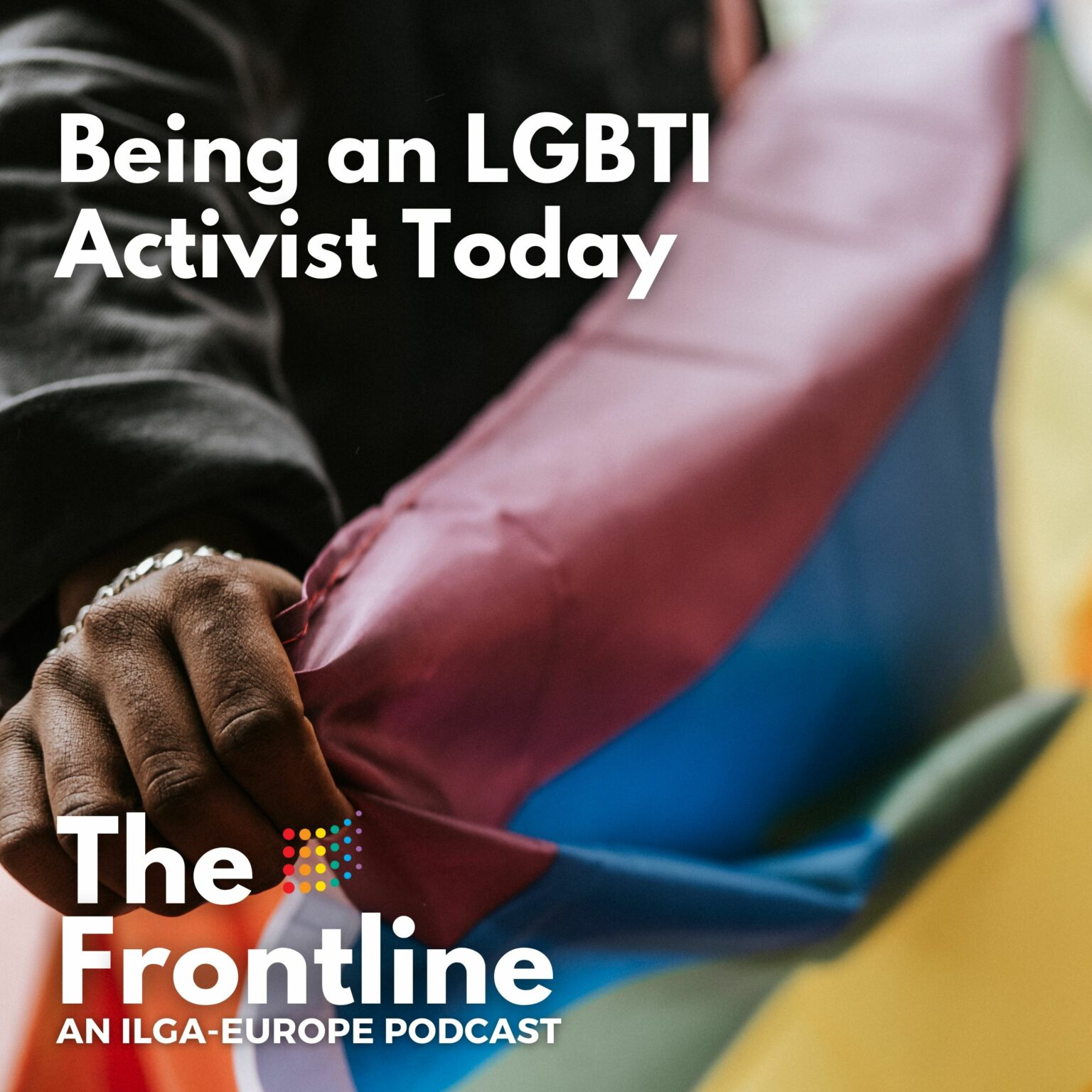
Joining us to talk about the reality of queer activism in the current context, the good sides and bad, are ILGA-Europe’s Programmes Director, Bjorn van Roozendaal; Ola Kaczorek, founding member of Love Does Not Exclude, the first organisation to demand marriage equality in Poland; Irena Cvetkovic, the Executive Director of Coalition Margins in North Macedonia, which works to promote and protect the human rights of marginalised communities, and Ruslana Hnatchenko from the Ukrainian lesbian feminist NGO, Women Association Sphere.
Listen below or click here to listen and subscribe to The Frontline on your favourite podcast platform.
Istanbul Convention: We achieved a lot together and we will not stop there!
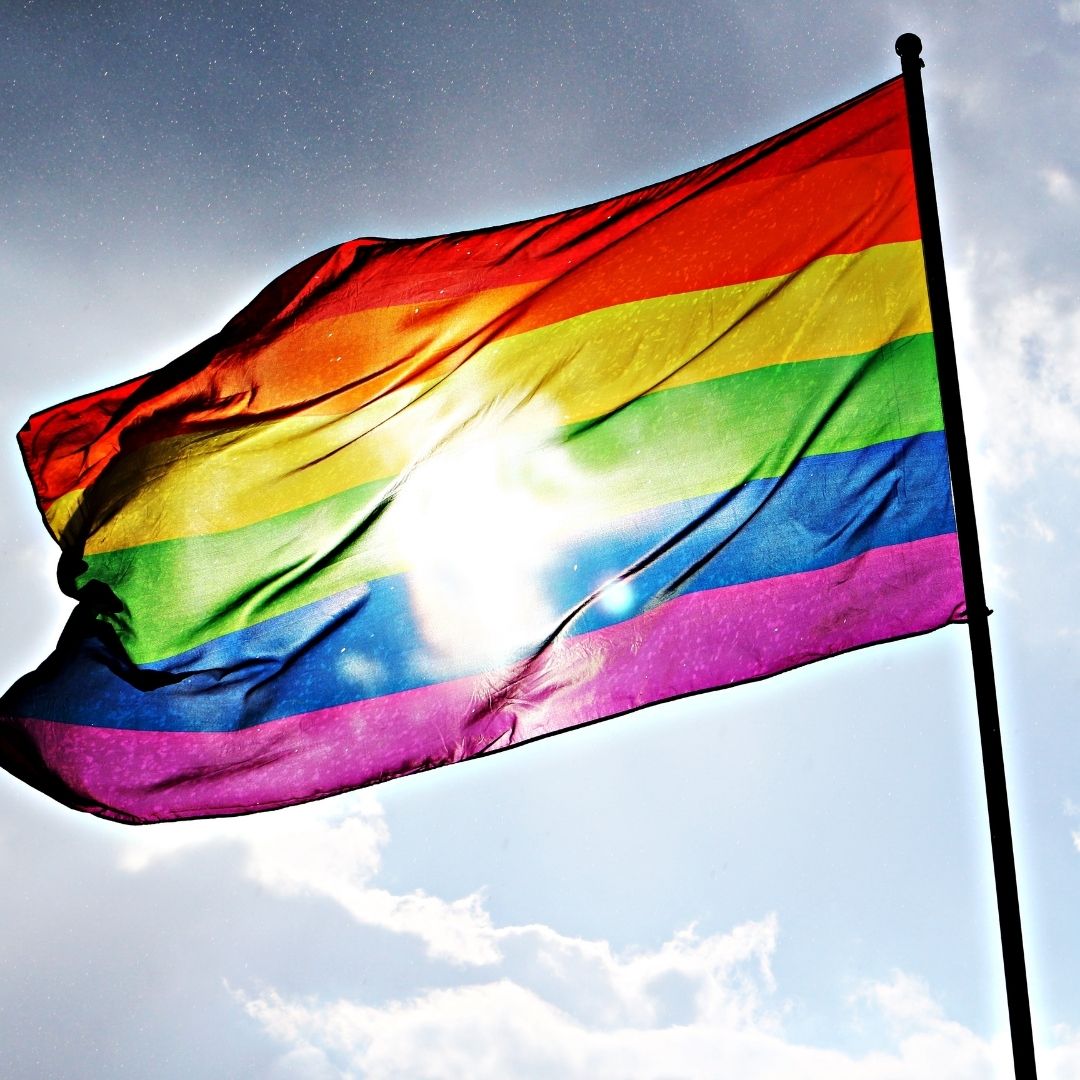
Nine European umbrella civil society organisations – including ILGA-Europe – have written to Thorbjorn Jagland (CoE Secretary General) on why the Istanbul Convention is still so important.
Our organisations all believe that the Istanbul Convention can bring change and have a real impact on the lives of women and girls in Europe.
On behalf of the hundreds of millions of citizens, and in particular, women and girls, represented through our nine European umbrella civil society organisations, we are writing to thank the Council of Europe for its great work and achievements in relation to preventing and fighting against gender-based violence.
We have no doubt that the CoE will continue to demonstrate leadership towards protecting all women from gender-based violence and to encourage all the CoE Member States to ratify the Convention and to fully implement it.
We look forward to continue working with the CoE towards a continent free from gender-based violence where all women feel safe and empowered.
Read the letter to Thorbjorn Jagland in full here.
Signed by:
- Amnesty International
- Center for Reproductive Rights
- The European Humanist Federation
- ILGA-Europe – the European region of the International Lesbian, Gay, Bisexual, Trans and Intersex Association
- The European Women’s Lobby
- The International Planned Parenthood Federation European Network
- Organisation Intersex International Europe
- The Platform for International Cooperation on Undocumented Migrants
- Transgender Europe
cc: Michele Nicoletti, President of the Parliamentary Assembly of the Council of Europe, Dunja Mijatovi?, Council of Europe’s Commissioner for Human Rights, Feride Acar, President of the Group of Experts on Action against Violence against Women and Domestic Violence, and Snežana Samardži?-Markovi?, Director General of DG Democracy.
Update:
- Women Against Violence Europe (WAVE) sent an email to the CoE Secretary General, in support of the Istanbul Convention, signed by 1166 NGOs!
European Parliament backs call for civil society supports in the EU
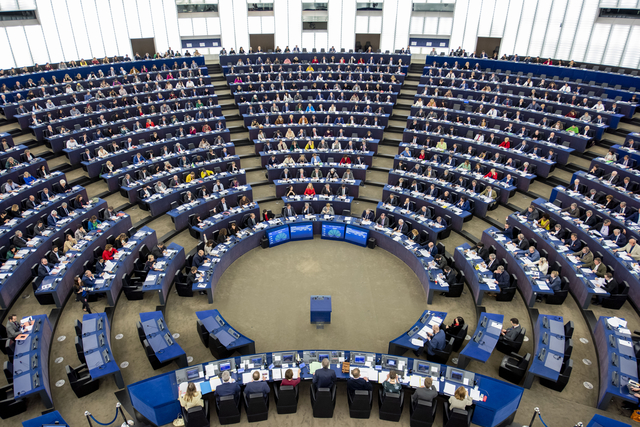
This morning, 489 MEPs voted in favour of an instrument to support civil society organisations which promote democracy, rule of law and fundamental rights.
Over 500 LGBTI organisations are members of our ILGA-Europe family – and the message coming from many of them for the past few years has been undeniable. Their work is getting harder, much harder.
Their ability to organise events with their local LGBTI community, as well as working in alliances for human rights and the rule of law in their countries, is reducing.
This is happening all over Europe – it’s not a problem that only exists outside the EU. We repeat: this is problem for the EU too.
And it’s not just ILGA-Europe who have observed this phenomenon – in January 2018, the FRA’s new report recognised shrinking space at an institutional level for the first time and said it needed to be urgently addressed.
One very practical way to better support civil society groups who are experiencing obstacles (whether direct or indirectly) is more flexible funding. There are several great mechanisms available for human rights defenders reworking outside the EU’s borders, including from DG NEAR and DG Devco – but nothing similar for EU-based civil society to turn to.
That is why ILGA-Europe is delighted to see that MEPs in Strasbourg today in a resolution clearly call for a funding mechanism for human rights organisations working in the EU. The European Parliament has shown that it understands the realities faced by activists working to create positive change in their communities. I
In her intervention in the debate in plenary on Tuesday, Commissioner Jourova also voiced her support for such an instrument and it is now up to the European Commission to include a European Values Instrument in its proposal for the next Multi-annual Financial Framework (or MFF). Such an instrument should allow for direct support for national organisations working on human rights and democracy in a flexible manner.
Ban on LGBTI events in Ankara must be overturned

The ban on events organised by LGBTI organisations, as announced by the Ankara Governor’s Office last weekend (18-19 November 2017), is disturbing and a clear breach of fundamental freedoms and human rights.
The fact that events organised by LGBTI organisations are being targeted in this way is very unnerving. The public events they are organising are a vital outlet for LGBTI people living in the city. The LGBTI community are an integral part of society in Ankara and deserve to be protected by the local authorities.
The official statement cited public security, public order, public health and morality concerns as reasons to ban activities being organised by LGBTI groups.
The governor’s office stated that events such as film screenings, plays and exhibitions on LGBTI issues could cause “reactions and provocations against the groups and individuals taking part in the organization due to certain social sensibilities”.
These LGBTI events should be protected against any potential security threats, not dismissed in such a way. Several LGBTI organisations in Turkey have already called the ban unconstitutional and illegal and the Council of Europe’s Commissioner for Human Rights said today that “such a blanket ban clearly disregards Turkey’s international human rights obligations, notably under the European Convention on Human Rights”.
The ban also appears to be open-ended, with no clear end date being specified in the official statement from the governor’s office. This indefinite time period is yet another example of how civil society in Turkey is being prevented from functioning effectively.
ILGA-Europe are calling on the authorities in Ankara to rescind this disgraceful ban, and instead devote their energy to protecting the right to freedom of assembly and association of civil society groups.
- Turkey currently sits at 46th place in the Rainbow Europe ranking on law and policy.
- The Governor’s Office statement announcing the ban is available here.
- The announcement has been translated to English here.